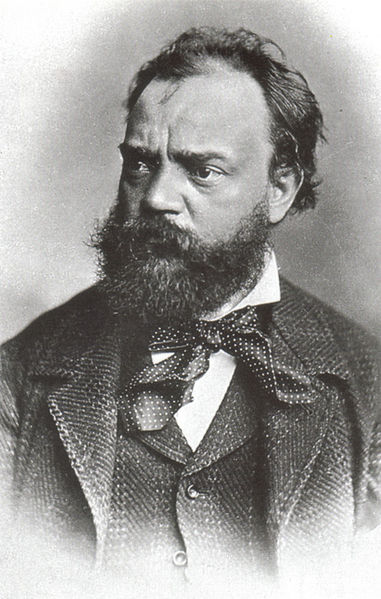Rembrandt Chamber Players deliver superb performance of Dvořák masterpiece

Among the handful of top works in the genre, Dvořák’s Piano Quintet places high indeed, worthy to stand with those by Schumann and Brahms. Born of frustration and a failed attempt to revise an unsatisfactory early quintet in the same key, Dvořák started from scratch and completed his Op. 81 in six weeks. With its lively contrasts, thematic richness and opportunities for all five players, The Piano Quintet in A major ranks among Dvořák’s finest works.
The Czech composer’s quintet was the highlight of the Rembrandt Chamber Players’ program presented Monday night at the Driehaus Museum. Sight lines are virtually nonexistent on the third-floor foyer of the beautifully restored mansion on the Near North side, but the sound is clear, detailed and very lively.
Now in its 23rd season, the Rembrandt ensemble enjoys a consistently strong personnel lineup, drawing many of its regulars from the ranks of the Lyric Opera Orchestra. Monday night’s performance of Dvořák’s quintet was impressive indeed. Led by first violinist Robert Hanford (Lyric Opera Orchestra concertmaster), the musicians delivered a strong, richly idiomatic performance that was in synch with Dvořák’s bristling vitality as well as the melancholy Bohemian folk strain imbedded in this score. Hanford, second violinist Sheila Hanford, violist Carol Cook, cellist Barbara Haffner, and pianist Jeannie Yu were fully engaged with the turbulent, impassioned elements of the opening Allegro.
The viola was Dvořák’s own instrument, and has a prominent profile in the “Dumka” second movement. Carol Cook, recently promoted to principal viola of the Lyric Opera Orchestra, offered burnished tone and the requisite febrile rustic flavor, and, along with her colleagues, underlined the distinct, even schizoid contrasts of the movement. With high-energetic keyboard playing by pianist Yu and nimble sweet-toned violin work by first violinist Hanford, the finale provided a suitably combustible coda.
The evening’s first half offered attractive shorter works by Malcolm Arnold and Alberto Ginastera.
Arnold’s Oboe Quartet is an early work written in 1957, the same year the 36-year-old composer won the Academy Award for his score to The Bridge on the River Kwai. Running less than 12 minutes in three brief movements, the quartet is cast in that peculiarly British style of attractive musical bustle that manages to be buoyant yet relaxed at the same time.
The oboe is primus inter pares here and Robert Morgan has the full measure of this cheerful score. His flexible tone, liquid phrasing and spirited playing was fully in synch with this attractive music, putting across the wry humor and kinetic energy of the final Vivace in superb style. Morgan received equally assured support from his string colleagues, first violinist Hanford in particular.
Though inspired by the title Andean mountain plateaus, Ginastera’s Impresiones de la Puna is a far cry from the complex Latin rhythms and exotic coloring of showpieces like his Variaciones concertantes. Scored for flute and string quartet, this is a gentle, rather slight work in three short sections, but with Sandra Morgan’s agile light touch in the prominent flute role, the work’s wistful charm was neatly conveyed.
The evening led off with a performance by the Acaso String Quartet. One of two winners of the Rembrandt’s annual (and admirable) High School Chamber Music Competition, the young musicians (violinists Harriet Han and Owen Ruff, violist Cordelia Brand and cellist Martin Nyberg), showed fine poise and largely polished proficiency in the first movement of Ravel’s String Quartet.
The Rembrandt Chamber Players close their season 3 p.m. May 12 with guest soprano Christine Brandes in a program of Dutilleux, Ravel, Handel, Piazzolla, and William O. Smith at the Music Institute of Chicago in Evanston. rembrandtchamberplayers.org
Posted in Performances




